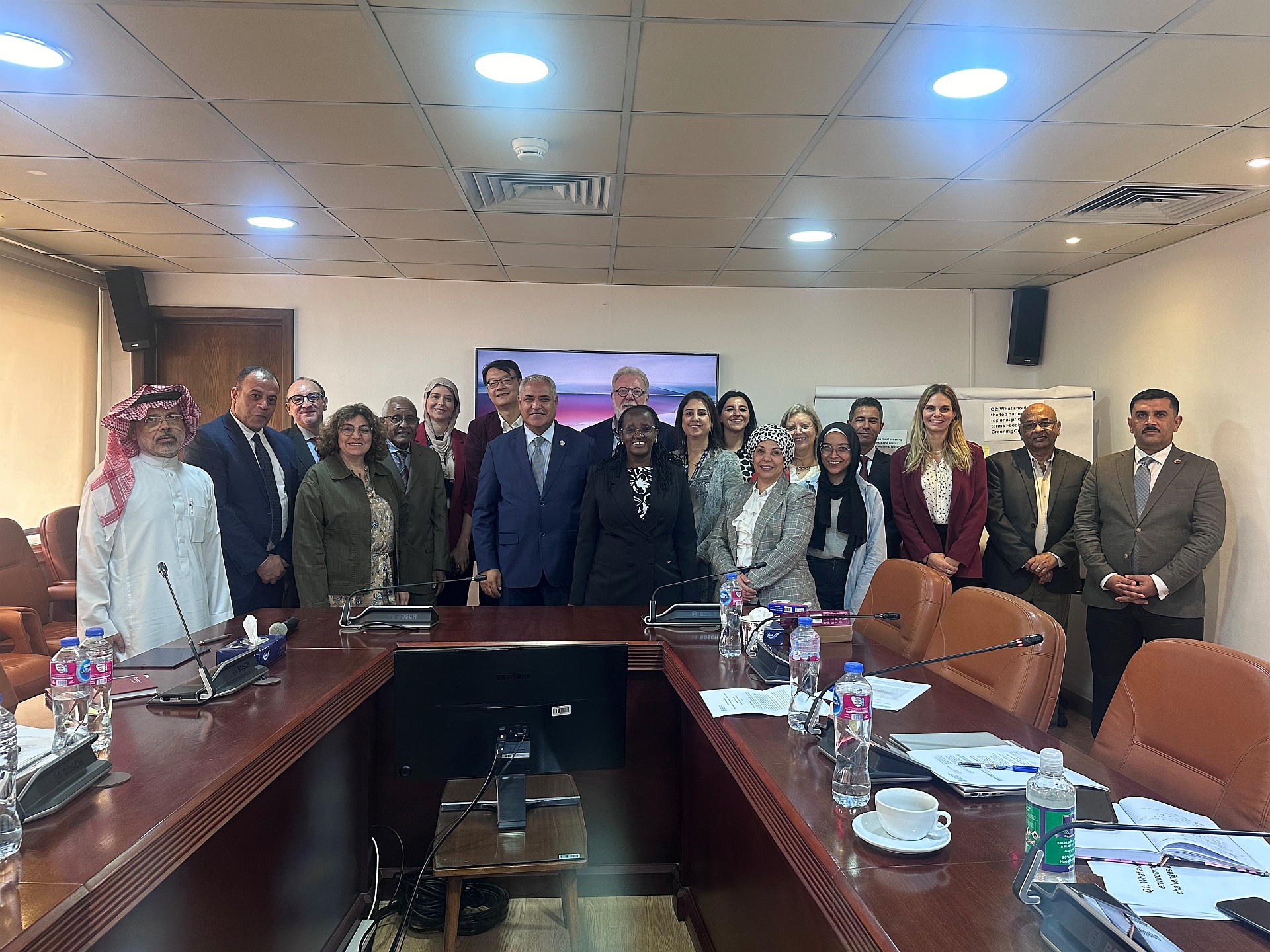Regional consultation workshop aims to shape roadmap on urban agrifood systems in the Near East and North Africa

©FAO/Mariam Ghamrawy
The Food and Agriculture Organization (FAO) of the United Nations’ Regional Office for the Near East and North Africa convened a regional consultation workshop on 3 November 2024, titled “Towards a roadmap on urban agrifood systems in the Near East and North Africa”. Held in Cairo, Egypt, this gathering marks a significant step toward developing a cohesive strategy to address the significant agrifood challenges posed by urbanization in the NENA region. The event brought together a diverse array of participants, including government representatives, FAO country office project managers, and international experts.
With rapid urbanization transforming the Near East and North Africa (NENA) region, urban centers are now facing unprecedented demand for food, resources, and services, exacerbating challenges related to environmental sustainability, food security, and infrastructure. By 2050, urban populations in the NENA region are projected to surpass 450 million, representing nearly three-quarters of the total population. This surge in urban residents has far-reaching implications for agrifood systems, which already experience stress due to ecosystem degradation, food loss, and resource scarcity. To address these concerns, FAO-RNE is developing a regional roadmap for sustainable urban agrifood systems, aiming to balance urban development with environmental protection and rural-urban linkages.
The main objective of the workshop was to facilitate a collaborative platform where stakeholders could exchange insights on urban agrifood systems, highlight successful practices and initiatives, and outline strategic steps for moving forward for better Urban Agri-food systems Sessions were structured to address core issues facing urban food systems in NENA cities, from environmental degradation and food waste to sustainable land use.
The agenda covered key themes, including:
- Defining regional environmental challenges in urban settings and exploring solutions through the FAO’s Better Environment 4 (BE4) framework.
- Sharing the outcomes of the 2023 Cairo workshop on urban agrifood systems to assess progress and alignment with FAO initiatives.
- Highlighting successful examples from the Green Cities and Urban Food Systems Initiatives and discussing lessons learned to support scaling across the region.
This participatory workshop included key technical experts, and FAO staff from Egypt, Kingdom of Saudi Arabia, Bahrain, Jordan, Iraq and Algeria that have presented key insights on initiatives including FAO projects on urban issues and national tree planting programs as well as Governments initiatives. Their contributions set the stage for the workshop’s discussions, focusing on aligning urban agrifood strategies with the FAO’s strategic framework and the Sustainable Development Goals.
Key outcomes of the workshop included valuable insights on gaps, challenges and opportunities in terms of policy, capacity building and partnerships towards the development of a regional implementation Roadmap for urban agrifood systems in the region This Roadmap will allow to document the successful experiences and best practices, to identify policy and capacity needs and determine financial opportunities for implementation and scaling up of initiatives.
The insights from this workshop will serve as a foundation for building resilient and sustainable urban agrifood systems, promoting cooperation across the NENA region, and advancing efforts under the FAO’s Urban Agrifood Systems Initiative and broader environmental agendas. The insights gathered during this workshop will also serve as an essential preparatory step for the upcoming World Urban Forum (WUF12) given their back-to-back scheduling, where FAO-RNE will focus on urban agrifood systems transformation in the NENA region through various side events. Key findings from today’s session will greatly contribute to FAO’s planned event on the 8th of November 2024 at WUF, fostering deeper engagement on sustainable urban food systems. For further information on FAO’s activities during WUF, visit the event page here.
